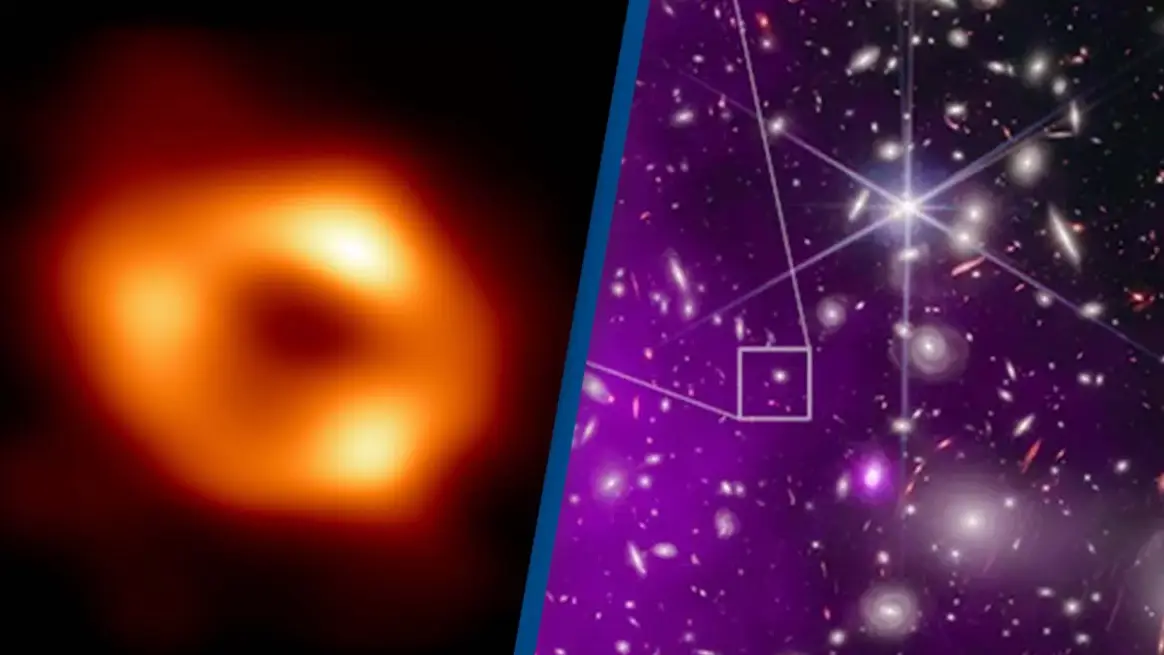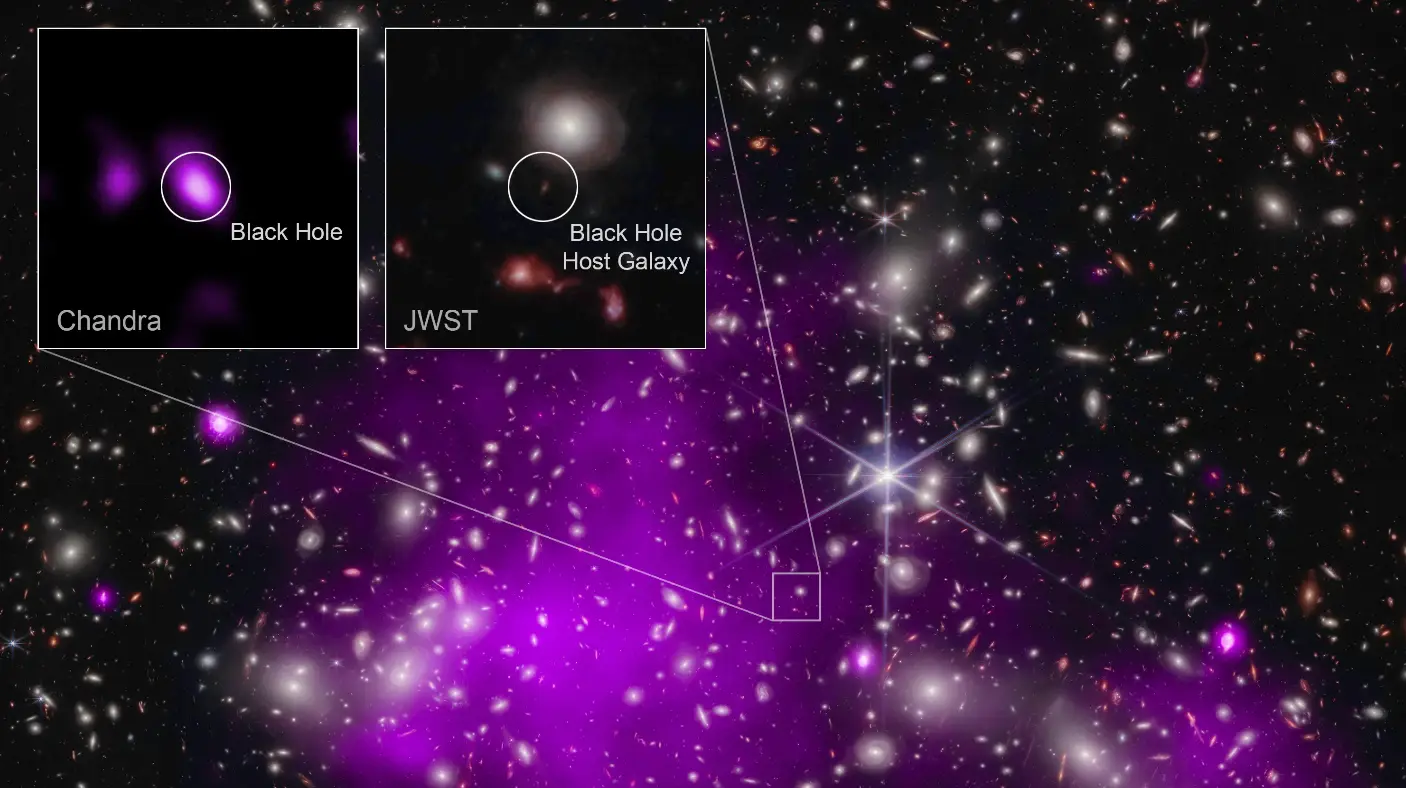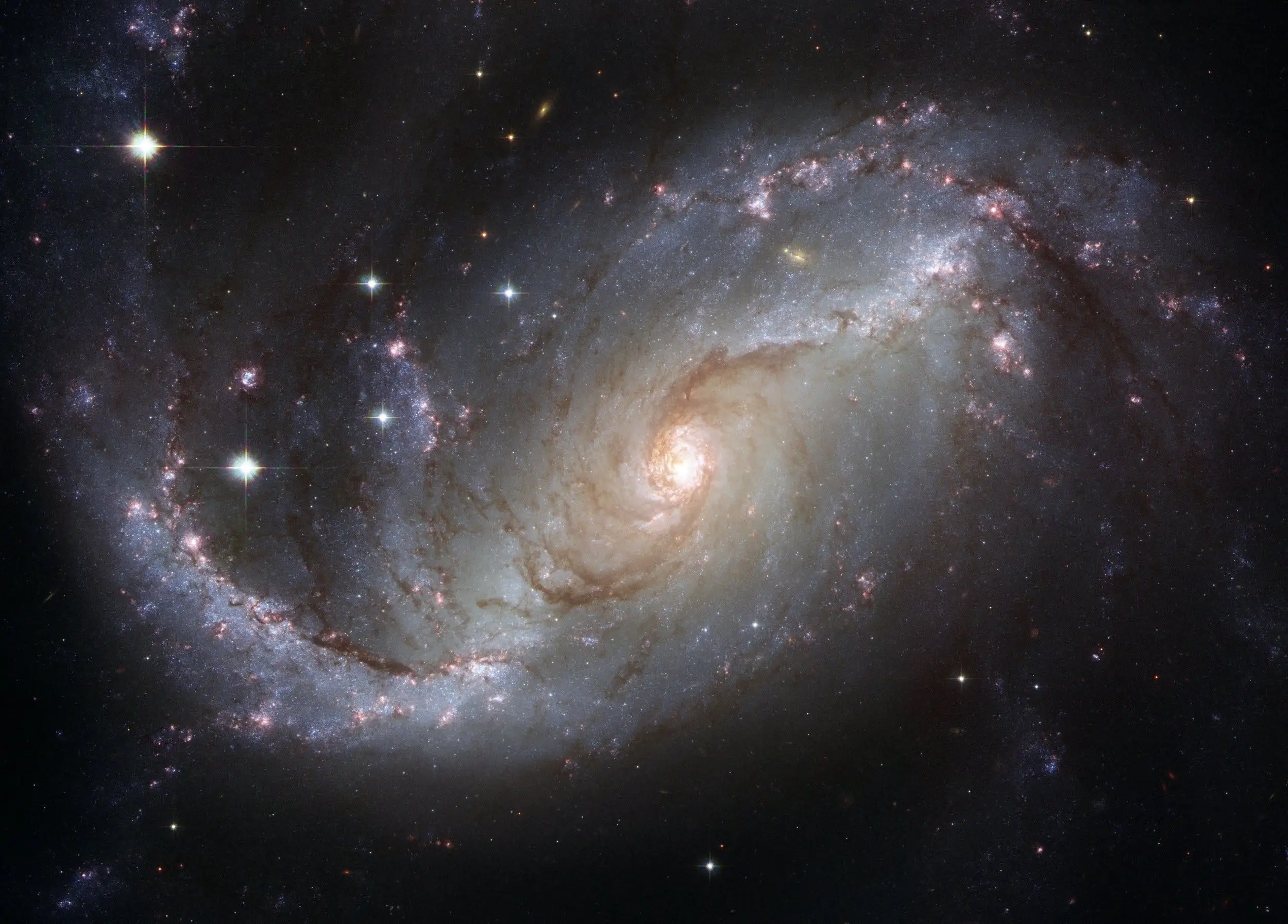
If you thought you felt old today, let me tell you about the discovery of the oldest black hole known to man.
The new discovery made by NASA bring us one step closer to understanding some of the fundamental principles of the universe.
Yesterday (November 6), the space agency confirmed they'd found the oldest black hole to date.
Advert
In case you skipped science class that day, black holes are regions in space where gravity is so strong that nothing, including light and other electromagnetic waves, has enough energy to escape it.
Found in a galaxy called UHZ1, this newly discovered black hole is 10 times bigger than the one in our own Milky Way.
And what this means for scientists and science enthusiasts alike is quite fascinating.
This new finding isn’t just another space discovery, instead it unlocks a new understanding of our universe and its early origins.
For the past year, scientists at NASA’s James Webb Space Telescope and Chandra X-Ray Observatory have been working together to find and confirm the black hole.
“We needed Webb to find this remarkably distant galaxy and Chandra to find its supermassive black hole. We also took advantage of a cosmic magnifying glass that boosted the amount of light we detected,” said Akos Bogdan of the Harvard-Smithsonian Center for Astrophysics.

Together, the two centers have been working to confirm theories that supermassive black holes existed at the dawn of the universe.
Indeed, this latest discovery proves theorists were correct and that some black holes were born more ‘massive.’
Scientists believe the universe began 13.7 billion years ago and they estimate this black hole is 13.2 billion years old - meaning it was formed just 470 million years after the Big Bang.
Yale Professor Priyamvada Natarajan, who took part in the study, said in a press release: “It’s just really early on in the universe to be such a behemoth. It’s astounding how this thing actually is sitting in place already with its galaxy so early on in the universe.”’

Dr. Natarajan and her colleagues think these enormous black holes were created when clouds of gas collapsed in one galaxy next to a galaxy with stars.
These galaxies then combined to form one and the black hole took over - and it's still growing today.
NASA further shared that the discovery 'is important for understanding how some supermassive black holes can reach colossal masses soon after the Big Bang'.
And what’s even more intriguing is Natarajan believes more and potentially even older black holes are still out there.
The Webb telescope may have spotted a black hole that is 29 million years older, according to scientists, but it’s yet to be verified.
“We are expecting a new window to open in the universe, and I think this is the first crack,” she concluded.
Topics: Science, Space, Black Hole